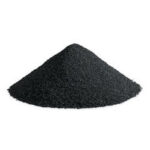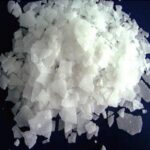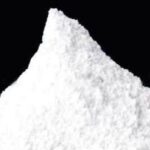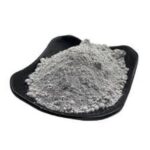Foundry Sand
Foundry Sand, also known as casting sand, is a high-quality silica sand that is used in the metal casting industry to create molds and cores for the production of metal components. While the primary use of foundry sand is in the casting process, there are several applications and uses of foundry sand in construction.
Here are some examples:
Manufactured Sand: Foundry sand can be used as a substitute for natural sand in the production of manufactured sand. By crushing and screening the used foundry sand, it can be processed into a fine aggregate with similar properties to natural sand. Manufactured sand can be used in various construction applications, including concrete production, masonry work, and asphalt production.
Concrete and Mortar: Foundry sand can be used as a partial replacement for natural sand in concrete and mortar mixes. It helps to improve the workability, strength, and durability of the concrete. The use of foundry sand in concrete can also contribute to reducing the environmental impact of concrete production by decreasing the demand for natural resources.
Road and Pavement Construction: Foundry sand can be used in road construction and pavement applications. It can be mixed with other aggregates and binders to create base and sub-base layers for roads, sidewalks, and parking lots. Foundry sand helps to enhance the stability, strength, and load-bearing capacity of the road surfaces.
Embankments and Landfill Covers: Foundry sand can be used in the construction of embankments and landfill covers. Its high compaction properties make it suitable for filling and grading applications. By using foundry sand in embankments and landfill covers, it can provide a stable and impermeable barrier to prevent the migration of contaminants.
Pipe Bedding and Backfill: Foundry sand can be used as a bedding material and backfill in underground pipe installations. It provides a stable and uniform support for the pipes, allowing for proper alignment and load distribution. Foundry sand also offers good drainage properties, which can help to reduce the risk of pipe corrosion and enhance the longevity of the infrastructure.
Synthetic Turf Infill: Foundry sand can be used as an infill material for synthetic turf systems. The sand particles provide stability and cushioning, improving the performance and safety of the turf surface. Foundry sand infill also helps to control the temperature of the synthetic turf, reducing the heat absorption and making it more comfortable for users.
Uses of FOUNDRY SAND OTHER THAN construction
Foundry sand has various applications beyond construction. Here are some common uses of foundry sand in other industries:
- Soil Amendment: Foundry sand can be used as a soil amendment in agriculture and landscaping. It contains beneficial properties such as high organic matter content and good drainage characteristics. When properly mixed with soil, it can improve soil structure, water retention, and nutrient availability, making it suitable for horticulture, turf management, and reclamation projects.
- Geotechnical Applications: Foundry sand can be utilized in geotechnical engineering projects. It can be used as a backfill material in trenches, embankments, and land reclamation projects. The sand’s compaction properties and stability make it suitable for filling voids and providing structural support in soil stabilization applications.
- Manufactured Products: Foundry sand can be recycled and processed into various manufactured products. It can be used as an aggregate in the production of concrete blocks, bricks, and paving stones. Foundry sand can also be used as a raw material in the production of ceramic tiles, glass, and other industrial products.
- Landscaping and Playgrounds: Foundry sand can be used in landscaping applications such as golf courses, parks, and playgrounds. It can be used as a top dressing for golf course greens and fairways to enhance drainage and provide a smooth playing surface. In playgrounds, foundry sand can be used as a safe and soft surfacing material beneath play structures to cushion falls and reduce injuries.
- Filtration Media: Foundry sand can be used as a filtration media in water and wastewater treatment systems. Its high silica content and uniform particle size make it effective in removing suspended solids, organic matter, and heavy metals from water. Foundry sand filters are commonly used in industrial settings, stormwater management, and septic systems.
- Industrial Abrasives: Foundry sand with suitable properties can be used as an abrasive material in various industrial applications. It can be used for sandblasting, metal cleaning, and surface preparation. The abrasive nature of foundry sand allows for efficient removal of paint, rust, and scale from metal surfaces.
- Animal Bedding: Foundry sand can be used as a bedding material for livestock and horse stalls. It provides a comfortable and clean surface for animals, absorbs moisture, and helps control odors. The sand can be easily cleaned and reused, making it a cost-effective option for animal bedding.
It is worth noting that the use of foundry sand in construction applications may require proper testing and quality control to ensure its suitability for specific purposes and compliance with relevant standards and regulations. Additionally, local regulations and guidelines regarding the use of foundry sand may vary, so it is important to consult with local authorities and experts before using foundry sand in construction projects.
It’s important to note that the suitability of foundry sand for these applications may depend on its specific characteristics, such as grain size, composition, and contamination levels. Therefore, proper testing and quality control are necessary to ensure its suitability and safety in each particular use case.






